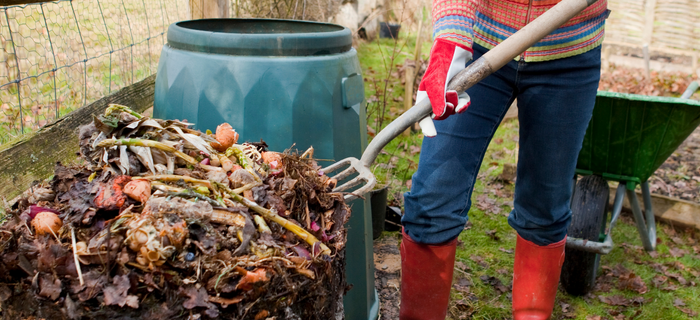Composting at home is a great way to help the environment. It also gives you healthy soil for your garden. Many people think composting is hard. But it is simple and fun. You do not need special tools or big space. Anyone can start composting at home.
What is Composting?
Composting is the process of turning food scraps and plant waste into rich soil. This soil is full of nutrients. It helps plants grow strong and healthy. Composting reduces the amount of waste that goes to the trash or landfill.
When things like fruit peels, vegetable scraps, and leaves break down, they become compost. Tiny animals and bacteria help break these materials. The result is dark, crumbly soil called compost or humus.
Why Should You Compost at Home?
- Save Money: Compost gives you free fertilizer for plants.
- Reduce Waste: Less garbage goes to landfills.
- Help the Environment: Compost lowers pollution and greenhouse gases.
- Improve Soil: Compost makes soil soft and full of nutrients.
- Grow Healthy Plants: Plants get better food from compost.
What Can You Compost?
You can compost many things from your kitchen and garden. But some items are better than others. Here is a simple list.
| Good to Compost | Do Not Compost |
|---|---|
| Fruit scraps (apple cores, banana peels) | Meat or fish scraps |
| Vegetable scraps (carrot tops, potato peels) | Dairy products (milk, cheese) |
| Eggshells (crushed) | Oils and greasy foods |
| Coffee grounds and tea bags | Pet waste |
| Leaves and grass clippings | Plastic and metals |
| Small branches and twigs | Diseased plants |
| Paper and cardboard (small pieces) | Weeds with seeds |
How to Start Composting at Home
Starting composting is easy. Follow these steps.
1. Choose A Compost Bin Or Space
You can buy a compost bin or make one yourself. You also can use a corner in your garden. The space should have good air flow. It should be easy to reach.
2. Add Compost Materials
Put food scraps and yard waste in the bin. Use a mix of green and brown materials. Green means things like vegetable scraps and grass. Brown means dry leaves, paper, or small twigs.
3. Keep It Moist
Compost needs water to break down. It should be as wet as a wrung-out sponge. If it is too dry, add water. If it is too wet, add dry materials like leaves.
4. Turn The Compost
Use a stick or shovel to mix the compost every 1-2 weeks. This helps air get inside. Air is important for the compost process.
5. Wait And Watch
It can take 2-6 months for compost to be ready. When it looks dark, crumbly, and smells like earth, it is done. You can use it in your garden or potted plants.
Tips for Better Composting
- Cut big scraps into small pieces. They break down faster.
- Do not add too much of one thing. Mix greens and browns well.
- Keep the compost moist but not soaking wet.
- Turn the compost often to give it air.
- If it smells bad, add more dry brown materials.
- Keep meat and dairy out. They attract pests.

Credit: imaginacres.com
Types of Composting at Home
There are different ways to compost. Choose what fits your home best.
1. Traditional Compost Bin
Use a bin or pile in your garden. Add scraps and turn often. Good for yards with space.
2. Tumbler Composting
A tumbler bin lets you turn compost easily by spinning. It speeds up composting. Good for small spaces.
3. Vermicomposting
This uses worms to break down food scraps. Worms eat the waste and make rich compost. Works well indoors or small areas.
4. Bokashi Composting
Bokashi uses special bacteria to ferment scraps quickly. It works in a sealed container. Good for kitchen scraps and small homes.

Credit: blog.ekameco.com
Common Problems and Solutions
Composting can have issues. Here are common problems and easy fixes.
| Problem | Cause | Solution |
|---|---|---|
| Bad smell | Too wet or no air | Add dry leaves, turn compost |
| Fruit flies or pests | Meat or fruit scraps on top | Cover with soil or leaves |
| Compost too dry | Not enough water | Spray water gently |
| Slow composting | Not enough air or materials | Turn compost, add mix of green and brown |
How to Use Finished Compost
When compost is ready, use it in many ways.
- Mix with garden soil to improve plants.
- Put in flower pots for healthy flowers.
- Use as mulch around trees and bushes.
- Help grow vegetables and herbs better.
Frequently Asked Questions
What Is Composting At Home?
Composting at home is recycling organic waste. It turns kitchen scraps into nutrient-rich soil.
How Do I Start Composting At Home?
Start with a bin. Add layers of greens like kitchen scraps and browns like leaves.
What Materials Can Be Composted At Home?
Compost fruit peels, vegetable scraps, coffee grounds, eggshells. Avoid meat, dairy, and oils.
How Long Does Composting Take?
Composting can take 2 to 6 months. It depends on the materials and conditions.
Conclusion
Composting at home is easy and useful. It helps reduce waste and makes soil better. You do not need a lot of space or special tools. Just start with simple scraps and keep your compost moist. Turn it now and then. Soon, you will have rich compost for your plants.
Try composting today. Your plants and the planet will thank you.
5 min read

